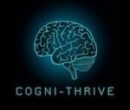As women age, understanding the interplay between hormonal changes and cognitive health becomes increasingly crucial. Recent discussions have highlighted why women are diagnosed with dementia more often than men—and the answer lies in the power of estrogen. This comprehensive guide explores the stages of hormonal transition, the impact of estrogen on brain function, and actionable strategies for maintaining cognitive health throughout the aging process.
Understanding Menopause and Its Cognitive Impact
What Is Menopause?
Menopause marks the end of a woman’s menstrual cycle, typically occurring in the mid-50s. Beyond the well-known symptoms such as hot flashes, night sweats, and mood swings, menopause also brings subtle yet significant changes to brain function. During this time, estrogen levels decline, and the body’s natural defenses against inflammation—crucial for brain health—wane.

The Link Between Estrogen and Brain Function
Estrogen is vital in maintaining cognitive resilience by acting as a potent anti-inflammatory agent. It helps regulate cortisol, the hormone involved in the stress response. When estrogen levels drop, this balancing act is disrupted, potentially leading to increased brain fog, memory disturbances, and other cognitive challenges. These changes are often misinterpreted as depression or simply attributed to aging when they may be early warning signs of more serious cognitive issues.
Estrogen Deficiency and the Risk of Dementia
Hormonal Imbalance and Inflammation
Lower estrogen levels have been linked to heightened inflammation in the brain. Increased inflammation accelerates brain aging and contributes to the development of dementia. When the brain’s neurons are under constant inflammatory stress, their ability to function optimally diminishes, creating a fertile ground for cognitive decline.

The Consequences of Early Hormonal Interventions
For decades, the clinical approach to women’s health issues sometimes included drastic procedures such as hysterectomies—often with the removal of ovaries—despite only minor symptoms being evident. Emerging research now indicates that women who undergo such surgeries, particularly those performed at younger ages (before 41 or even 34), face a significantly elevated risk of developing dementia later in life. These findings stress the importance of understanding the long-term consequences of interventions that abruptly affect estrogen levels.
The Complexities of Hormone Replacement Therapy
The Evolution of Hormone Replacement Therapy (HRT)
Hormone Replacement Therapy (HRT) emerged in the 1960s as a solution for managing menopausal symptoms. Early HRT regimens, however, were associated with increased risks, including certain types of cancer and cardiovascular complications. In the 1990s, initial studies, which primarily focused on older women many years post-menopause, painted a concerning picture that led to a significant drop in HRT usage.

Reevaluating the Benefits and Risks Today
Modern research is refining our understanding of HRT. Newer, more targeted studies indicate that when administered correctly—especially among women who begin therapy before or at the early stages of menopause—the benefits of hormone replacement can outweigh the risks. Appropriate HRT not only alleviates the symptoms of menopause, such as hot flashes and sleep disturbances but also supports cardiovascular health and cholesterol management and even helps reduce the risk of dementia by preserving cognitive function.
Proactive Steps to Maintain Cognitive Health
Early Monitoring and Regular Lab Work
One of the most effective strategies for safeguarding cognitive function is early detection and consistent monitoring of hormone levels. Even in their 30s, women can benefit from regular lab work to track estrogen levels and other key biomarkers like vitamin D. Early detection allows for timely intervention—whether dietary, lifestyle-related, or therapeutic—before significant hormonal declines impact cognitive health.
Nutrition, Exercise, and Lifestyle Adjustments
A balanced diet rich in fiber, protein, and essential vitamins contributes significantly to maintaining stable estrogen levels. Additionally, regular exercise not only supports metabolic health and muscle mass—which aids in blood sugar control—but also enhances overall brain health. Strength training and cardiovascular workouts can help mitigate the risks associated with hormonal imbalances.

Being Your Own Advocate
Women should feel empowered to seek out knowledgeable healthcare professionals specializing in women’s health and longevity. Armed with proper information, patients can ask the right questions about hormone therapies and alternative strategies for managing menopause symptoms. An informed approach optimizes physical health and significantly bolsters cognitive resilience.
Proactivity is Mandatory
The relationship between estrogen and brain function underscores the importance of a proactive approach to women’s health during menopause. Women can take decisive control of their cognitive futures by understanding the underlying hormonal dynamics, recognizing early signs of cognitive decline, and implementing lifestyle changes along with personalized medical interventions. Remember, cognitive decline is not inevitable—and with the right strategies, you can continue to thrive at every stage of life.
Take charge of your brain health today: monitor your hormone levels, adopt a balanced lifestyle, and consult with professionals who understand the nuances of women’s health. Empowerment begins with knowledge, and proactive steps today can lead to a healthier, more vibrant tomorrow.


